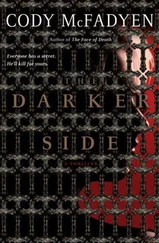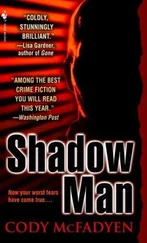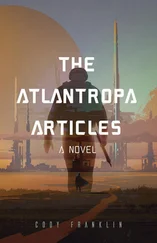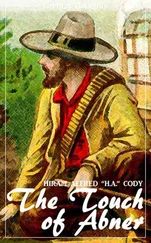“That one of the scary black people came over and shot that poor white man, of course,” Callie says.
Earl smiles. “That’s correct, little lady. What’s the likely truth, based on what I’ve been saying?”
“That he was killed by someone on his side of the tracks,” I say, getting it.
“Just so. Comfort zones.”
“All very interesting,” James says, conveying with his tone that he thinks anything but. “How does it help us here, now?”
“In due course, young Jim,” Earl says, seemingly unaffected by James’s misanthropy. Maybe he’s used to difficult students. “We consider other factors too. We look at the abduction site and the dump site. We examine the likely escape routes and see what that tells us about him. So on.”
I grimace. “I think I’m starting to understand why you said you might not be able to help much. We don’t know who his first victim was. The abduction sites were built around the victim, not the perpetrator. And the dump sites were chosen for effect, not convenience.”
Earl mimes tipping a hat at me. “That’s correct, Ms. Barrett. Add to that mix the fact that he’s operating in three separate states we know of and …” He shrugs. “Makes things a little tough.”
“What can you tell us?” I ask.
“A few things. First: He’s probably from the western seaboard. My guess would be Southern California or hereabouts.”
“Why?”
“The victims we’re aware of come from Los Angeles, Oregon, and Nevada. It’s a broad area, but it’s still a comfort zone of sorts. That’s why I say Western Seaboard. I’m thinking SoCal because of the victim in Nevada. A perpetrator living in Oregon is less likely to stray to Vegas as a hunting ground than one who either lives in or grew up in Los Angeles.”
“That actually makes sense,” James allows.
Cooper ignores him. “You said the perpetrator is probably driven by finance as the primary motive, and I agree with you. Then why stay out here, where real estate’s so expensive? It’d be cheaper to set up shop in the Midwest, the South, or some areas in the East. He probably tells himself he’s here because it’s a good victim pool, and there is truth in that, but I think he set up shop here because it’s familiar territory.”
“I can see that,” I say, warming to this line of deduction.
“There are other things we can ascertain in the victim dumps. In both here and Oregon, he left the victims near the police. One on the steps of a police station. In Vegas, he left the victim on a side street. That would suggest he’s much more comfortable in California and Oregon than he is in Nevada.”
“Which means he’d spend more time there, meaning we should concentrate our efforts in those two states, right?” I ask.
He smiles at me, tips that imaginary hat again. “Yes indeed. It’s where he’ll be most predictable. He’ll stray away from the profile more in those areas outside his comfort zone.”
“But if that’s so,” Callie says, “wouldn’t that also be where he’s most likely to make a mistake?”
“You’d think so, but no. He’d be far more careful in unfamiliar territory, whereas he’d be more relaxed—however infinitesimally or subconsciously—in those comfort zones.”
“What else?” James ask, interested now.
“Prefacing all of this with ‘in my opinion,’ of course, I’d say that you can ignore all suburban neighborhoods. They’re too small and packed too close together. Neighbors want to know you and your business. I considered the woods in Oregon and the desert in Nevada but rejected those. I agree with the idea that he’d keep an eye on his victims while traveling, and that requires that he be on at least the outskirts, where Internet connectivity is still available.” He consults his notes briefly. “Business districts are a good choice, because people are by and large keeping their heads down. They don’t own a business zone the same way they do the space where they live, and so they’re less observant. It also would allow him to rent or buy the space he needs in the name of a business, giving his personal information another layer of protection. I considered warehouses, and while that’s still a possibility, I don’t think that’s how he’d go. Warehouses tend to be in out-of-the-way areas—good for him—but they also have a higher probability of being the victim of attempted burglaries or squatters.”
“Somewhere in between,” James says.
Cooper nods. “Just so, young Jim. Those side streets, away from the strip malls and the main arteries. Where they put the business parks and such. That setting would fulfill his needs for privacy while keeping him within shouting distance of the streets and freeways, which he requires based on his abduction pattern. He’s taken the victims we know of from what are essentially urban areas. That’s an uncertain affair, and he’d want to get them back to his lair as quickly as possible.”
“Urban areas seems so risky,” I say.
“Yes and no. People tend to be more observant in your residential enclaves. If he’s decisive enough—and it surely seems that he is—urban areas are better in many ways. You have the highways, you have the streets. You can get almost anywhere in Los Angeles, at the right time of day, within forty-five minutes.”
“That’s true,” James says. “He timed these abductions mid-evening, which would be after most rush hours.”
“Right again,” Cooper says. He shuffles through his notes, seems to find his place. “Here we go,” he continues. “He’d own the properties he’s using. He doesn’t want to have to deal with a landlord snooping around. The victim described concrete walls. That doesn’t point to office space, though I suppose he could have bought the building and put in some aftermarket changes.”
“That would leave a trail,” James says.
“I thought the same. If I were going to do it—and keep in mind that we’re in the realm of pure guesswork now—I’d buy a piece of land and build myself a small storage unit building.”
“Personal storage?” I ask.
“Just so. Build it, but don’t advertise, and make sure the front office is never open. No one thinks twice about places like that getting few visitors, or getting visitors at odd times of the day or night. They’re generally gated off, and there are places where you can pull a car in and empty it out without anyone seeing a thing. Security-camera placement isn’t unusual either.”
“Or climate control,” James adds. “More upscale places offer it as an option, for people who are storing climate sensitive belongings, such as paintings or books.”
“It does make sense,” I allow.
Cooper shrugs. “That’s where my road ends, I’m afraid. Not sure if it’ll help you much in the final analysis, and there’s more guesswork than certainty there, but you asked and I answered.”
I stare at the whiteboard, seeing it but not seeing it. My gaze unfocuses. Workmanlike , I read. Torture , I think. Decisive.
Something’s knocking, wanting to be seen.
“I know that look,” Earl says, his voice soft. “Whatcha thinking, Ms. Barrett?”
The vagueness coalesces.
“I’m thinking about a man with, so far as we know, a perfect record of abduction. He follows his prey, gets to know their routine, and then he swoops in and takes them cleanly. It’s something you said. He’s decisive. Confident.” I look at Cooper. “Trained?”
James responds first. “Possible. These abductions are precision activities. You don’t arrive at that level of competence naturally.”
Earl twirls his mustache. “Military? Law enforcement?”
“It’s just a thought.”
“That makes sense as much as anything else. Still guesswork, but good guesswork, I think.”
Читать дальше











